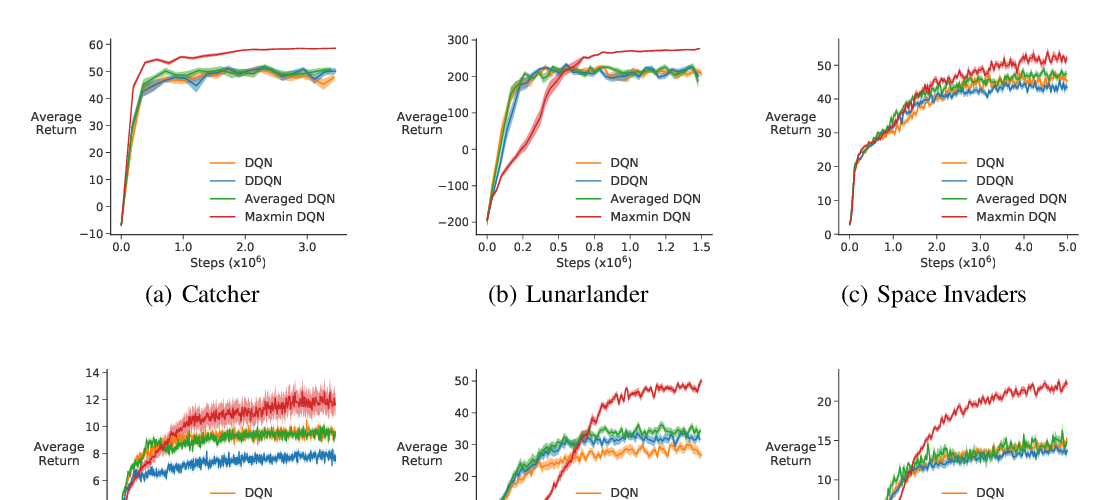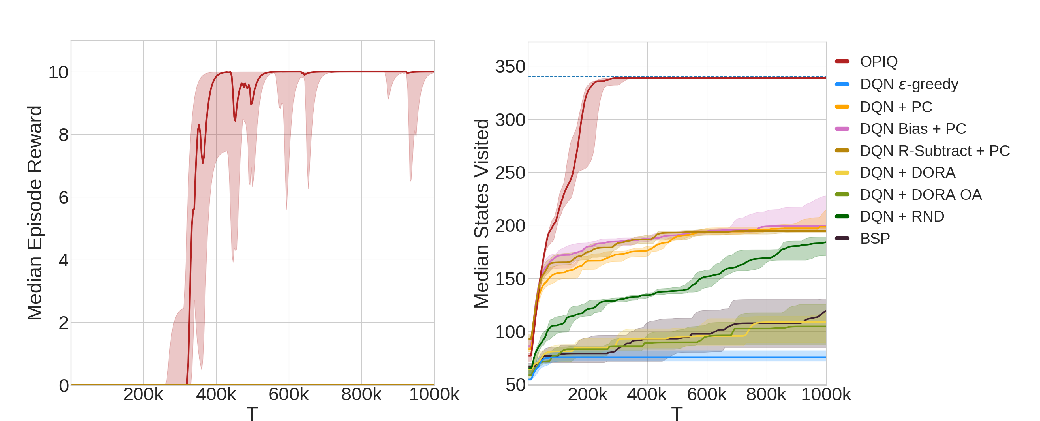Abstract:
Reinforcement learning (RL) with value-based methods (e.g., Q-learning) has shown success in a variety of domains such as
games and recommender systems (RSs). When the action space is finite, these algorithms implicitly finds a policy by learning the optimal value function, which are often very efficient.
However, one major challenge of extending Q-learning to tackle continuous-action RL problems is that obtaining optimal Bellman backup requires solving a continuous action-maximization (max-Q) problem. While it is common to restrict the parameterization of the Q-function to be concave in actions to simplify the max-Q problem, such a restriction might lead to performance degradation. Alternatively, when the Q-function is parameterized with a generic feed-forward neural network (NN), the max-Q problem can be NP-hard. In this work, we propose the CAQL method which minimizes the Bellman residual using Q-learning with one of several plug-and-play action optimizers. In particular, leveraging the strides of optimization theories in deep NN, we show that max-Q problem can be solved optimally with mixed-integer programming (MIP)---when the Q-function has sufficient representation power, this MIP-based optimization induces better policies and is more robust than counterparts, e.g., CEM or GA, that approximate the max-Q solution. To speed up training of CAQL, we develop three techniques, namely (i) dynamic tolerance, (ii) dual filtering, and (iii) clustering.
To speed up inference of CAQL, we introduce the action function that concurrently learns the optimal policy.
To demonstrate the efficiency of CAQL we compare it with state-of-the-art RL algorithms on benchmark continuous control problems that have different degrees of action constraints and show that CAQL significantly outperforms policy-based methods in heavily constrained environments.


